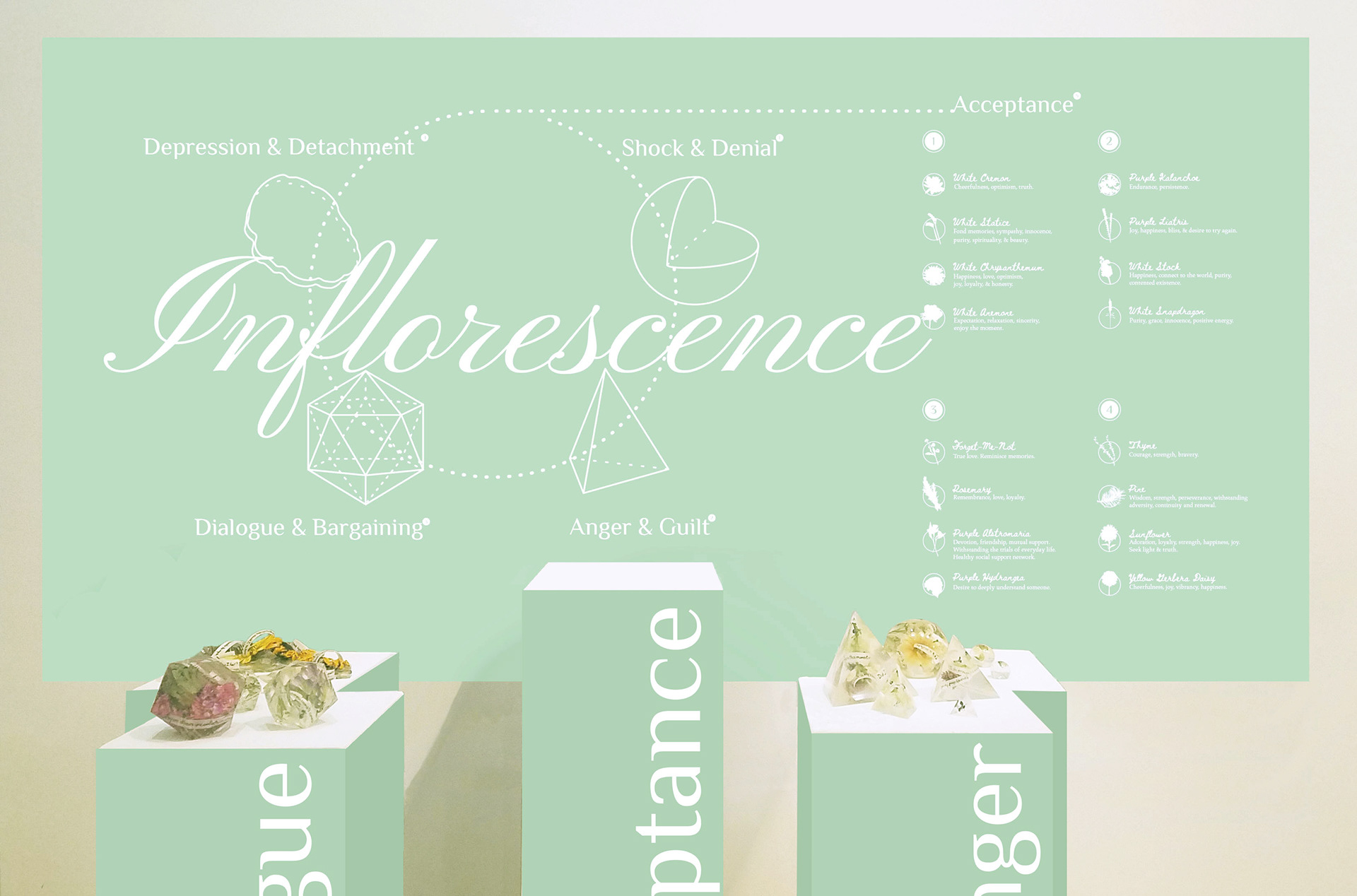Although grief is unique to each person, there are common stages and feelings that function as connecting points with others, in a time that can feel isolating. Inflorescence is an interactive and reflective experience for those who have encountered grief. No matter the duration after loss, grief is a cyclical process in which is never truly resolved. Rather, grief is a guide to become acquainted with over time.
This interactive experience is designed for the audience to become familiar with the stages of grief. Although the wall graphics display a cyclical process, this is an orderly system devised for easy comprehension to make visual sense and give context of something that can feel so disorderly. The four varying sizes of forms are a direct representation of the internal weight of grief, recognizing that it can have different quantities of weights. The first four of the five stages of grief house physical forms. Acceptance is intentionally left empty. Audience members are invited to build physical reflections of their grief process and the space it is occupying within.
Encompassed in these resin forms are thoughts commonly experienced in their respective stage. Flowers juxtapose these thoughts, to represent the contrasting positive aspects that can grow from these feelings and emotions.
The journey to acceptance is a repetitive one, but there is growth with grief.
In Loving Memory of Gabriel Edel Haack

Shock & Denial
Phrases within the forms:
-It’s a mistake.
-I feel numb.
-This doesn’t make sense.
-When will this nightmare end?
Anger & guilt:
Phrases within the forms:
-Why me?
-Did I do enough?
-What is my remorse truly about? Is it rational?
-What is this anger, in this moment, sincerely about for me?
depression & detachment:
Phrases within the forms:
-Why should I be compassionate to myself?
-What is the point of going on? Why should I be here?
-Does anyone genuinely want to know how I feel?
-Why speak to others when they criticize my grief?
dialogue & bargaining:
Phrases within the forms:
-What if I could have saved them?
-Who can I have a compassionate conversation with about my departed?
-What if I could have done something differently?
-Why are others uncomfortable when I want to speak of happy memories of my departed?
Displayed in the Bowling Green State University BFA Thesis Exhibition 2020.
